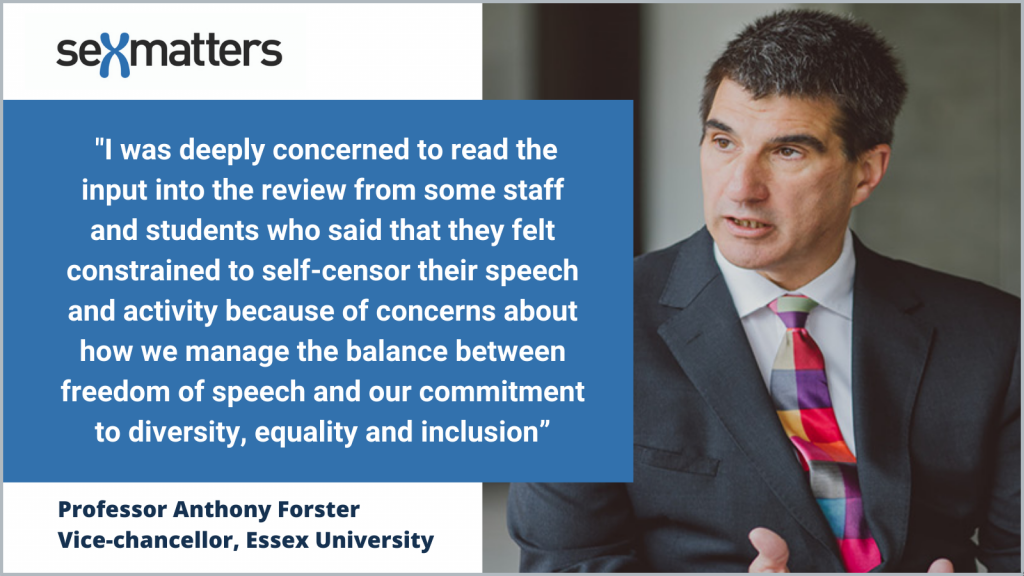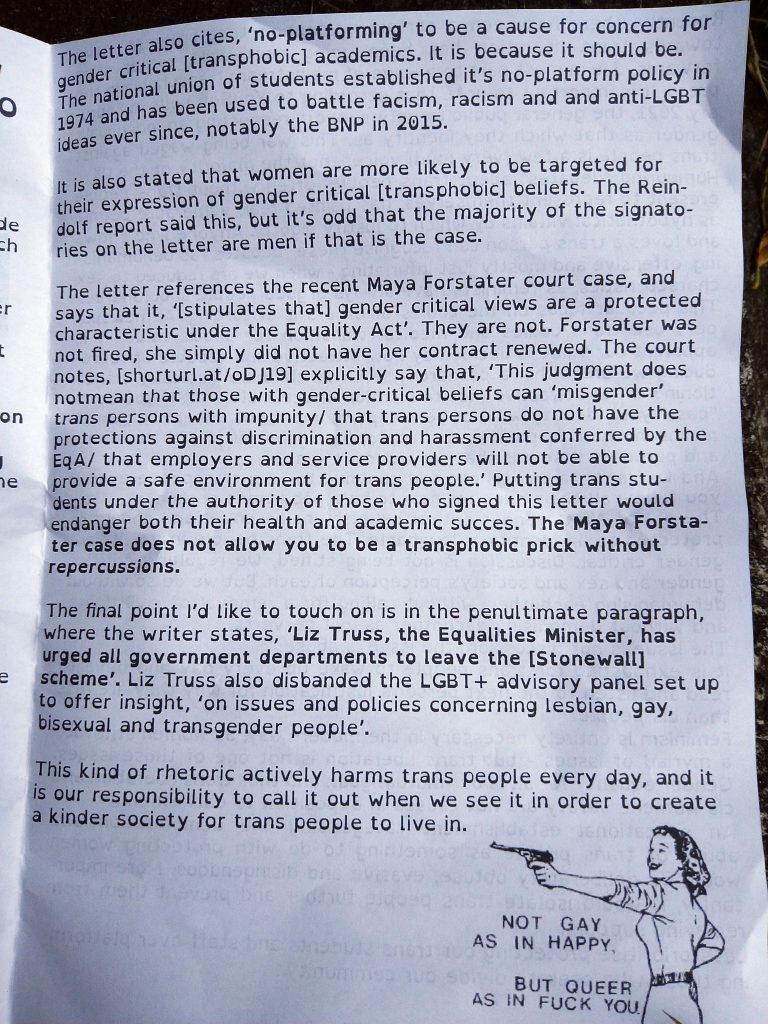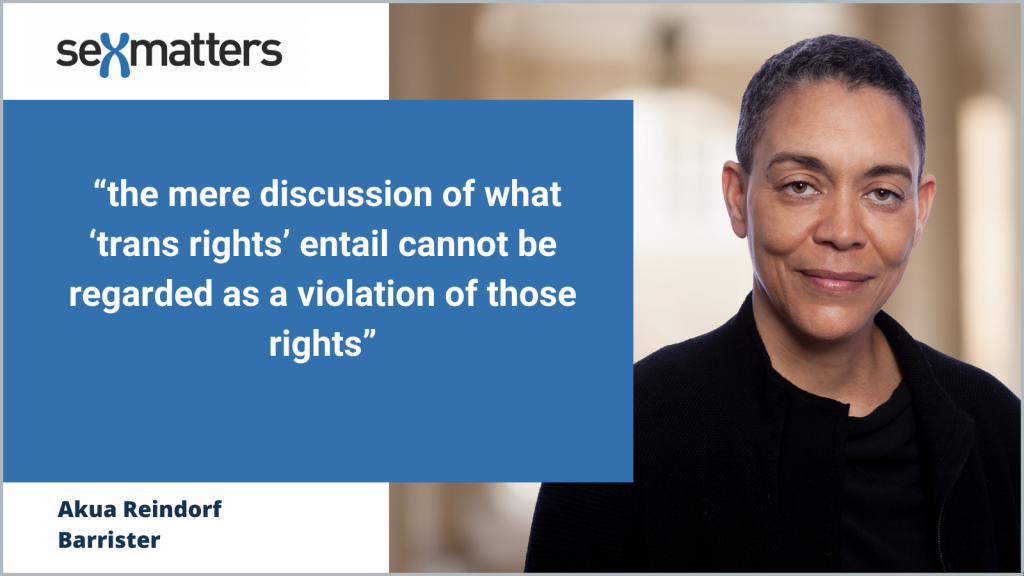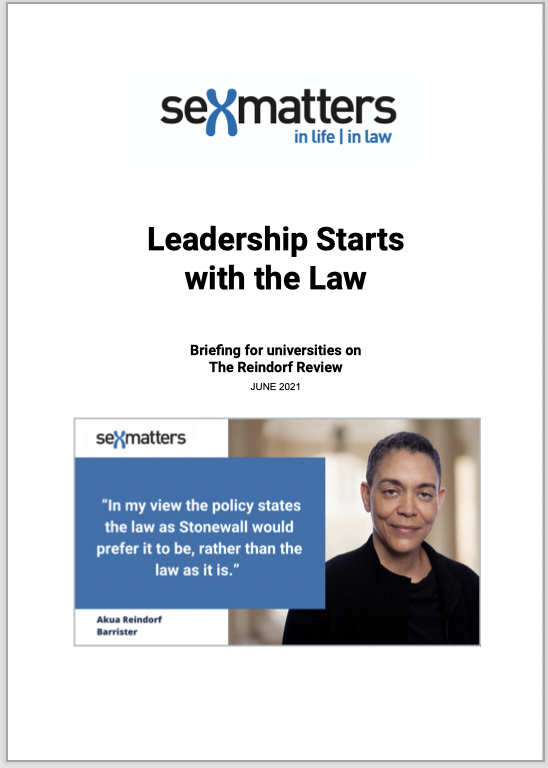The Reindorf Review: a wake-up call for universities

In May 2021 the University of Essex published a review by barrister Akua Reindorf concerning the “deplatforming” of two academics because of their “gender critical” views. The university apologised to the two academics and is working to remedy the deeply concerning issues raised by the review.

Sex Matters has published a summary of the Reindorf Review (together with the Forstater judgment) and is sending this report to the vice chancellors of all universities in the UK, the Secretary of State for Education, the Minister of State for Universities and the Office for Students in England, and the relevant authorities in Scotland, Wales and Northern Ireland.
The Reindorf Review exposes a widespread phenomenon: accusations of transphobia deployed first to curtail academic freedom, and then to prevent people talking about the curtailment of academic freedom. It highlights unlawful university policies developed through processes captured by internal and external lobby groups, and cultures of fear for staff and students who disagree with gender identity ideology.
We keep a database of academics, university staff and visiting lecturers targeted for their gender-critical views (where stories have reached the public domain), and have compiled a compilation of these media stories.
As debate is breaking through we are seeing an escalation in the response. For example, calls for the Open University to withdraw support from the newly formed Gender Critical Research Network (in particular an extraordinary letter from the London School of Economics Gender Studies Department), and leaflets being handed out at Cardiff University featuring violent imagery. Then there is the ongoing case of Raquel Rosario Sánchez at Bristol University.


The Reindorf Review sets out clearly what the law says, and calls on the University of Essex to ensure that its policies are in line with the Equality Act, and to rethink its relationship with Stonewall.

We call on university leaders to go back to the Equality Act and uphold their responsibilities in law
Some universities are already taking up Reindorf’s recommendation to establish a working group to review their policies, reconsider their relationship with Stonewall and to devise and implement a strategy for repairing relationships between trans and non-binary university members and those with gender-critical views, in particular women.
There are nine key messages for universities leaders:
- Gender-critical belief is not controversial. The “gender-critical” belief that men are male and women are female aligns with the law, and is widely held.
- A plurality of different belief systems about sex and gender are protected under the Equality Act. People with ordinary beliefs about sex are protected against discrimination, as are people with beliefs in gender fluidity.
- Everybody has equal protection from harassment. Universities must consider the effect of their policies on those with gender-critical views as well as transgender people.
- Universities should bring their policies back into line with the Equality Act, taking into consideration all nine protected characteristics and objective tests of harassment.
- Offence taken does not mean that unlawful harassment has occurred. Strong feelings that gender-critical beliefs violate dignity or create an intimidating, hostile, degrading, humiliating or offensive environment do not make it so.
- Academic debate expressing gender-critical viewpoints is not harassment or hate speech. Ordinary standards of courtesy and academic conduct apply.
- There is no specific law against “misgendering”, nor any obligation on private individuals to respect gender identity. Ordinary laws in relation to harassment apply.
- Universities should set up working groups to repair relationships between groups on different sides of the gender debates.
- Universities should reconsider Stonewall membership. Stonewall’s advice is not in line with the Equality Act, and undermines academic freedom.
What happens at universities matters to everyone, because they are training tomorrow’s teachers, doctors and nurses, social workers, lawyers, lawmakers, decision makers and influencers.
We know that most people who work in and study in the UK’s universities want them to be places that encourage thought and debate, where policies on diversity and equality protect everybody’s rights. The Reindorf Review is a wake-up call to university leaders to build that culture.
We encourage anyone who is a student, staff, faculty or alumnae to read the summary report, and share it widely. Write to your university’s Vice Chancellor and Head of Human Resources, and to the Chief Executive of the Student Union and send them a copy.

